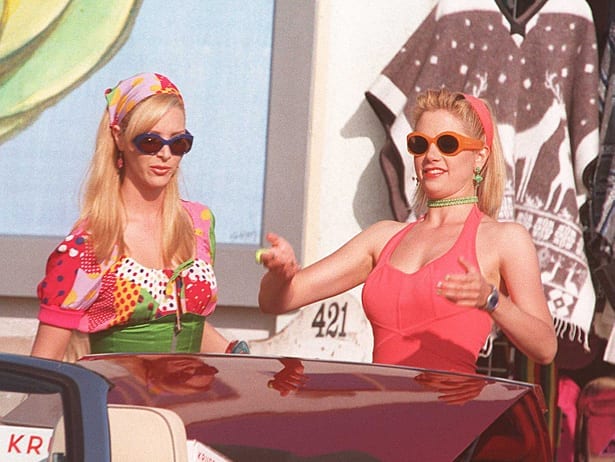The 87th Academy Awards is coming up this Sunday, February 22nd and I am pretty excited for it because several of the Best Picture of the year nominees are based on people who have made our world better in such special ways. Quick disclaimer: there are plot spoilers ahead so if you’re planning to see any of these movies and don’t know the whole story, go watch the movie first and then come back to read on!
American Sniper
“It was the responsibility I had to his family to preserve his legacy that weighed on me.” – Bradley Cooper in reference to Chris Kyle’s widow Taya and two children
I’m pretty sure most Texans are familiar with Navy SEAL sniper Chris Kyle. He wrote a bestselling autobiography (American Sniper) and appeared on the CONAN in 2012. He also teamed up with FITCO Cares Foundation, a nonprofit organization that created the Heroes Project to provide free in-home fitness equipment, individualized programs, personal training, and life-coaching to veterans with disabilities, Gold Star families, or those suffering from post-traumatic stress disorder. During his service, Kyle was awarded two Silver Star Medals, five Bronze Star Medals, one Navy and Marine Corps Commendation Medal, and two Navy and Marine Corps Achievement Medals-winning hero. Because of his service and dedication to our country, Governor Greg Abbot declared February 2nd Chris Kyle Day here in Texas.
Actor Bradley Cooper gives the performance of a lifetime as he portrays the stoic yet caring Chris Kyle in American Sniper. The movie sensitively portrays Kyle’s tragic ending and sheds light on the need for resources for our returning soldiers who suffer from PTSD. I’m so thankful to Kyle’s family, Bradley Cooper, director Clint Eastwood, and everyone else who helped to create this touching film. I think it has broadened awareness about returning veterans suffering from PTSD and started important discussions on what resources are needed to effectively treat it.
The Imitation Game
“Sometimes it is the people no one imagines anything of who do the things no one can imagine” – Joan Clarke in The Imitation Game
Anyone who is a fan of civil rights and/or computer technology (oh, right, everyone!) can appreciate the story of Alan Turing. Turing was a pioneering British computer scientist, mathematician, logician, cryptanalyst, philosopher, mathematical biologist, and marathon and ultra-distance runner. He was also gay in a time when being homosexual was a crime and punishable by prison or, in his case, chemical castration. It’s an awful part of history. The British government ultimately apologized for their inhumane treatment of Turing and pardoned him (posthumously) of his “crime”.
Benedict Cumberbatch plays Turing in The Imitation Game. He and his team, including Joan Clarke (played by Keira Knightley), are tasked with decrypting the Nazi Enigma machine, which they did, and while doing so discovered that one of their own was a Soviet spy. I’ll let you see the movie to find out what happens but I will tell you that Turing must put his own safety and happiness on the line in order to protect others. His story is incredibly powerful.
Selma
“What happens when a man stands up… says enough is enough?” – David Oyelo as Dr. Martin Luther King, Jr. in Selma
This film is not for the faint of heart but I recommend that everyone see it. The story of the 1965 Selma to Montgomery voting rights marches is told so poignantly by director Ava DuVernay and actor David Oyelowo, who plays Dr. Martin Luther King, Jr. It perfectly captures the essence of the man leading the American Civil Rights Movement. Similar to The Imitation Game, this movie shows how the movement affected real, everyday people and the relationships they have with their partner, family, neighbors, and friends.
While in college, I took a Rhetoric of Civil Rights class and watching Selma brought back memories of the classroom discussions I am now eternally grateful to have been a part of. I often wonder about how I would have reacted to the Civil Right Movement had I been alive at the time. Would I have stood up and fought back against the discrimination and brutality faced by African Americans in the south? Or would I stand by, knowing it was wrong, but too scared or intimidated to go against the community?
The Theory of Everything
“My advice to other disabled people would be, concentrate on things your disability doesn’t prevent you from doing well, and don’t regret the things it interferes with. Don’t be disabled in spirit as well as physically.”- Stephen Hawking
This romantic drama is based on Jane Wilde Hawking’s (Hawking’s ex-wife) memoir, Traveling to Infinity: My Life with Stephen. Stephen Hawking is the highly-esteemed, English theoretical physicist, cosmologist, author, and Director of Research at the Centre for Theoretical Cosmology at the University of Cambridge. He also suffers from a rare, early-onset, slow-progressing form of amyotrphic lateral sclerosis (ALS). ALS confines Hawking to a wheelchair and, for the past 20 years, he has used his trademark computer system to speak. But that certainly has not slowed him down in his professional or personal endeavors.
The movie shares the evolution of the Hawkings’ relationship as they meet in college and learn quite early on in their relationship that Stephen may not live to see age 25. Their love and support of one another is not perfect nor without its mistakes. The movie is inspiring for its authenticity as it shows the unwavering commitment the Hawkings’ made despite enormous, scary challenges. You can’t leave this movie without feeling encouraged to believe in the power of a determined love.
So, who do I think should win for Best Picture this year? With all these great movies to choose from it’s impossible for me to pick one. I’m just grateful for movies that tell the stories of real people and the struggles they face. They inspire me to think about the “big picture” and what is truly in important in life.
Don’t forget to tune in to ABC on Sunday, February 22nd, at 7pm EST!



